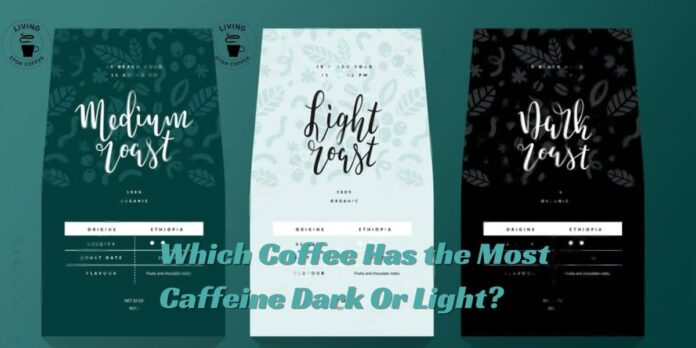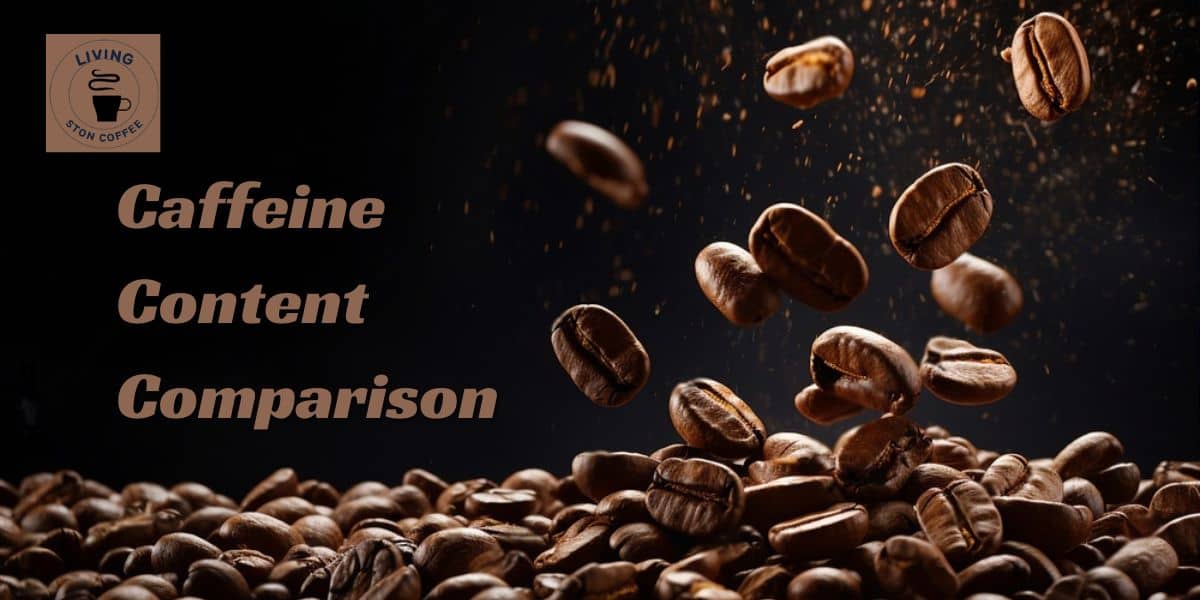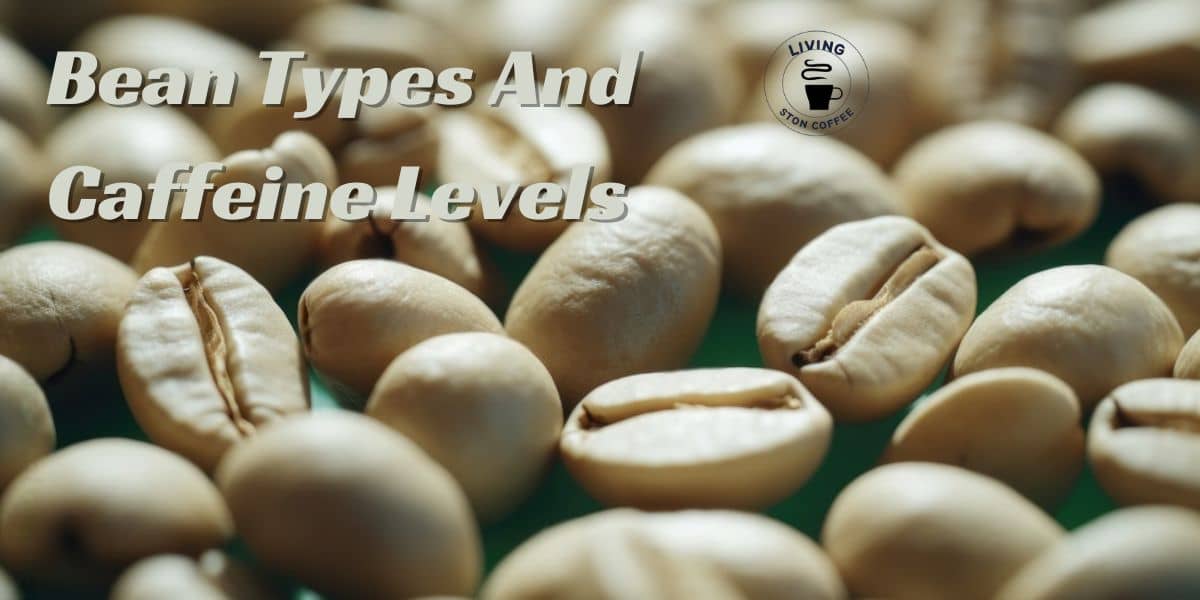Introduction
Dark roast and light roast coffee have the same amount of caffeine, as caffeine content remains consistent during the roasting process. However, the way you measure your coffee for brewing might affect the caffeine content.
Understanding Roasting
Roasting coffee, dark or light, doesn’t significantly affect caffeine levels. How you measure coffee for brewing can impact caffeine content.
Effect Of Roasting On Caffeine
One of the common misconceptions about coffee is that the roasting process affects the amount of caffeine in the beans. However, this assumption is not entirely accurate. Caffeine is a stable compound that remains virtually unchanged during roasting, meaning that the levels of caffeine in dark roast and light roast coffee are relatively similar.
While the roasting process may not directly impact the caffeine content, it does affect the taste and flavor of the coffee. Dark roast coffee tends to have a bolder and more robust taste, whereas light roast coffee offers a brighter and more delicate flavor profile. So, when choosing between a dark roast or a light roast, your decision should be based on your personal preference for taste rather than the caffeine content.
Dark Roast Vs. Light Roast: Common Assumptions
When it comes to caffeine content, it’s worth highlighting some assumptions people often make about dark roast and light roast coffee. One such assumption is that dark roast coffee is stronger and contains more caffeine kick than light roast coffee.
However, as mentioned earlier, caffeine content is unaffected by the roasting process, so the strength of the coffee is not directly related to the caffeine levels. Instead, the perceived strength of the coffee is influenced by factors such as the roast level, brewing method, and the amount of coffee used for brewing.
If you measure your coffee by scoops, light roasted coffee may actually have more caffeine compared to dark roast coffee. This is because the beans in light roast coffee are denser than those in a darker roast. So, if you prefer a stronger caffeine kick, using a higher amount of light roast coffee may be a suitable option for you.
However, it’s important to note that caffeine content is just one aspect of the overall coffee experience. The flavor, aroma, and even the origin of the beans play a significant role in determining the quality of your cup of coffee.
In conclusion, when deciding between dark roast and light roast coffee, it’s essential to consider your personal taste preferences rather than focusing solely on the caffeine content. Whether you prefer the boldness of a dark roast or the brightness of a light roast, savoring a cup of coffee that aligns with your flavor preference is what truly matters.
Caffeine Content Comparison
When comparing caffeine content, it is commonly believed that dark roast coffee has more caffeine than light roast coffee due to its bold flavor and darker color. However, the truth is that the caffeine content remains relatively the same during each stage of the roasting process.
The difference between the two roasts lies in their taste, not the amount of caffeine.
Analysis Of Caffeine In Different Roasts
In the debate between dark and light roasted coffee, many believe that the roasting process significantly impacts caffeine levels. However, the truth lies in how you measure the coffee for brewing. Light roasted coffee contains more caffeine when measured by scoops due to its density compared to darker roasts.
Implications For Coffee Drinkers
Caffeine content in coffee remains relatively stable during roasting, with the taste being the primary differentiator between dark and light roasts. For those seeking a stronger kick, the choice between dark and light roast comes down to personal preference rather than caffeine levels.
Brewing Methods And Caffeine
When it comes to coffee, one of the most debated topics is whether dark or light roast contains more caffeine. While caffeine is a stable compound that remains virtually unchanged during the roasting process, the brewing method can play a significant role in how much caffeine is extracted. In this section, we will explore the impact of brewing methods on caffeine content and discuss how to maximize caffeine extraction for a stronger brew.
Impact Of Brewing Methods
The brewing method you choose can have a substantial impact on the caffeine content of your cup of coffee. Certain methods, such as espresso and French press, have been found to extract more caffeine compared to pour-over or drip brewing. This is because these methods involve longer steeping times, allowing for greater extraction. However, bear in mind that brewing methods alone cannot compensate for the inherent caffeine content differences between dark and light roast coffee beans.
Maximizing Caffeine Extraction
If you’re looking to maximize the caffeine extraction from your coffee, there are a few tips you can follow:
- Use a finer grind: Finely ground coffee exposes more surface area, leading to enhanced extraction. This is particularly relevant for methods like espresso, where the water passes through the coffee grounds quickly.
- Increase the brew time: Allowing a longer steeping time, especially in methods like French press or cold brewing, can lead to a higher caffeine extraction.
- Control the water temperature: Higher water temperatures can extract more caffeine, so aim for temperatures between 195-205°F (90-96°C) for optimum extraction.
- Proper coffee-to-water ratio: Using the correct ratio of coffee to water ensures that you’re optimizing the extraction process. Aim for around 1 to 2 tablespoons of coffee grounds per 6 ounces (177ml) of water, but feel free to adjust based on your preference.
By following these steps, you can enhance the caffeine extraction during the brewing process and achieve a stronger cup of coffee.
Myth Busting
Does Dark Roast Signify More Caffeine?
Contrary to popular belief, the darkness of a coffee roast does not indicate higher caffeine levels. Caffeine is a stable compound that remains relatively unchanged during the roasting process. Therefore, whether your coffee is light or dark roast, the caffeine content remains consistent.
Dispelling The Density Myth
One common misconception is that lighter roasts have more caffeine due to their denser beans. However, the density of coffee beans does not directly correlate with caffeine content. Coffee measurement affects caffeine levels, but roast depth does not determine the caffeine amount in your cup.
Bean Types And Caffeine Levels
To determine which coffee has the most caffeine, understanding different bean types and their caffeine levels is crucial. Let’s explore how varying coffee beans’ caffeine content impacts your daily cup of brew.
Robusta Vs. Arabica: Caffeine Comparison
Robusta and Arabica are the two main species of coffee beans. Robusta beans typically contain a higher caffeine content than Arabica beans. On average, Robusta beans contain approximately 2.2-2.7% caffeine, whereas Arabica beans contain 1.2-1.5%. This significant variation in caffeine levels between the two bean types highlights the importance of understanding the bean variety used in your coffee.
Caffeine Variation Across Different Beans
It’s essential to recognize that caffeine content isn’t solely determined by the bean type but can also fluctuate within the same species due to factors such as origin, growing conditions, and processing methods. Certain varieties of Arabica beans, such as those grown at higher elevations, tend to have higher caffeine content. Additionally, different processing methods, like the natural and washed processes, can lead to varied caffeine levels in the beans.
Health Considerations
Caffeine Sensitivity: Individuals vary in how they react to caffeine due to differences in metabolism.
Consumption: Balancing caffeine intake is crucial for overall health and well-being.
Caffeine Sensitivity
Caffeine sensitivity can differ among individuals, affecting how one responds to coffee consumption.
Factors like age, weight, and genetics play a role in determining caffeine effects.
Consumption
Monitoring caffeine intake is essential to avoid adverse effects such as jitteriness and sleep disturbances.
opt for lighter roasts if you are sensitive to caffeine or limit consumption to avoid overstimulation.
Frequently Asked Questions Of Which Coffee Has The Most Caffeine Dark Or Light?
Which Coffee Is Stronger Light Or Dark?
Dark roasted and light roasted coffee have similar caffeine levels. The difference is in taste, not caffeine.
What Type Of Coffee Has The Most Caffeine?
The caffeine content in coffee is affected more by brewing methods and serving size rather than roast type.
Which Coffee Is Stronger?
Dark or light roast coffee does not affect caffeine content. Roasting methods do not change caffeine levels.
What Kind Of Coffee Has Less Caffeine?
The amount of caffeine in coffee is not determined by its roast level. Light or dark roast, the caffeine content remains the same.
Final Thought
To determine which coffee has the most caffeine, it is important to understand the roasting process.



